
Have you ever wondered how some websites always seem to pop up at the top of search engine results? The secret sauce often lies in effective keyword research. If you’re new to SEO or looking to brush up on your skills, this guide will walk you through the easiest and smartest ways to do keyword research. We’ll break it down step by step, so you can start using these strategies today without feeling overwhelmed.
What is Keyword Research?
Keyword research is like finding the map to a treasure chest—only, in this case, the treasure is traffic to your website. It involves identifying the words and phrases people use when searching for information online. By using these keywords in your content, you’re telling search engines, “Hey, this is what my site is about!”

Imagine keyword research as a detective with a magnifying glass, sifting through clues (keywords) to solve the mystery of what people are searching for.
Why is Keyword Research Important?
You wouldn’t want to create a party that no one attends, right? Similarly, creating content without understanding what your audience is searching for is a missed opportunity. Keyword research helps you:
Target the right audience: It’s like knowing what your audience is hungry for and serving exactly that. With the right keywords, you can reach people who are genuinely interested in your product or service.
Improve the SEO rankings of your website: Think of search engines like Google as the gatekeepers to your audience. When your content matches the keywords people are searching for, your website climbs the rankings, making you more visible.
Boost engagement: By aligning your content with what your audience is actively searching for, they’re more likely to stick around, read, comment, share, and even convert into customers.
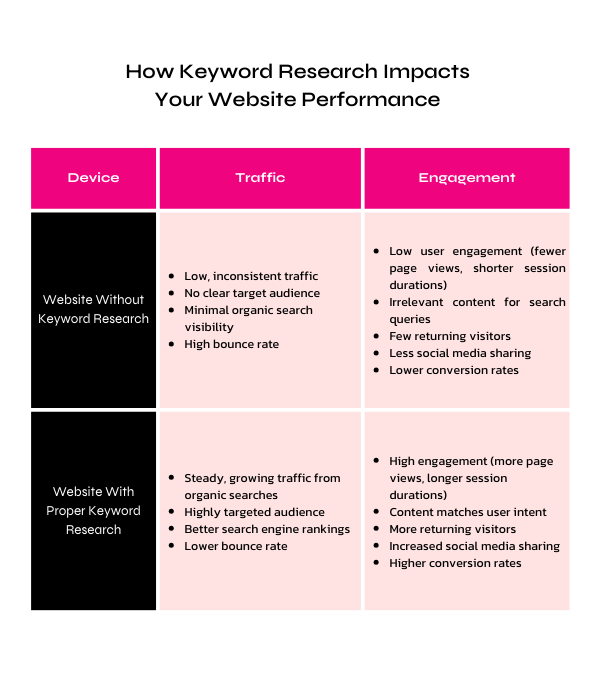
In short, keyword research helps you connect with your audience on their terms, leading to better visibility, engagement, and ultimately, results.
How to Research Keywords – The Smart Way
Smart keyword research isn’t just about finding popular terms—it’s about finding the right terms. Here’s a step-by-step guide:
Brainstorm Core Topics: Start by listing the main topics related to your business. Grab a pen and paper (or a digital tool if you’re tech-savvy) and jot down the main topics related to your business. These core ideas will serve as the foundation of your keyword list.
Use Keyword Tools: Once you have your core topics, it’s time to expand. Tools like Google Keyword Planner, SEMrush, or Ahrefs can generate tons of keyword ideas based on what real people are searching for.
Analyze Competition: Look at the keywords your competitors are using—especially the ones they’re ranking for. If they’re doing well with certain terms, it’s a good indicator that these are keywords worth targeting.
Example:
Let’s say you run a blog about healthy eating. Start with broad topics like “healthy recipes,” and use a tool to find related keywords like “quick healthy dinner ideas” or “easy vegan recipes.”
Where to Find Keywords for Your Website
Here are some practical places to discover keywords:
Google search suggestions: Start typing your main topic into Google and see what suggestions pop up.
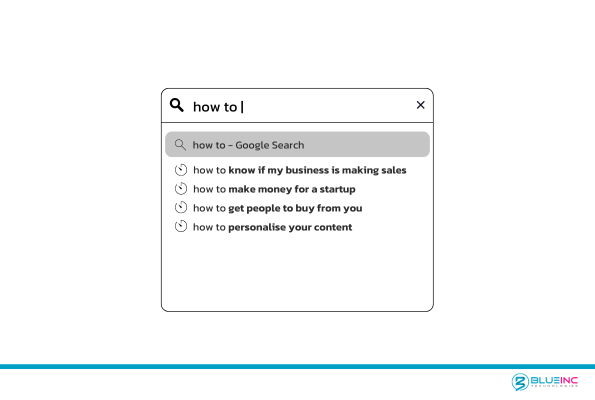
Competitors websites: Use tools like SEMrush to see what keywords your competitors rank for.
See the Essential Tools That Help in Keyword & Competitors Research.
Social media trends: Platforms like Twitter and Pinterest are goldmines for trending topics.
Best Keyword Research Tools for SEO
To get the most out of your keyword research, here are some top tools:
Google Keyword Planner: This tool is best for basic and free keyword research.
SEMrush: It is ideal for deep competitor analysis and keyword insights.
Ahrefs: This is a comprehensive tool with excellent keyword analysis features.
Ubersuggest: This tool is beginner-friendly with a focus on ease of use.
Pro Tip: Use a combination of these tools to cross-reference data for more accurate results.
How to Find Keyword Ideas
Finding keyword ideas can be a fun process if you know where to look:
Customer Questions: Ever had a customer ask a really specific question about your product or service? Those questions can make for excellent keywords. Think of them as breadcrumbs that lead you to valuable search terms.
Industry Forums: Ever had a customer ask a really specific question about your product or service? Those questions can make for excellent keywords. Think of them as breadcrumbs that lead you to valuable search terms.
Content Gaps: Look at what your competitors are writing about and see where they’ve missed the mark. By addressing those gaps, you can create content that meets a need others have overlooked—and capture those valuable keyword searches.
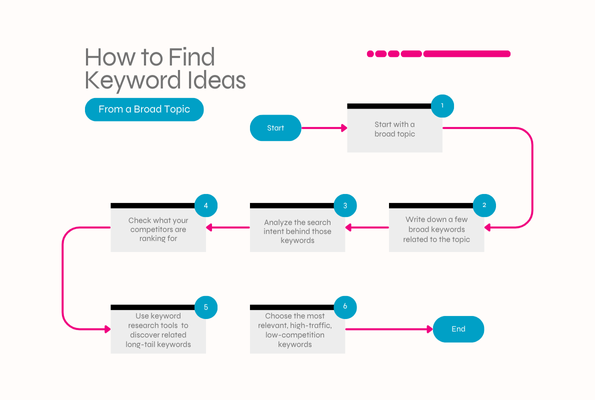
How to Choose the Right Keyword After Researching
So you’ve got a list of keywords—now what? It’s time to narrow it down. Not all keywords are created equal, so here’s how to choose the ones that will work best for you:
Search Volume: Sure, you want keywords people are searching for, but be cautious. Super high-volume keywords often mean stiff competition. Find a balance between search volume and your ability to rank.
Keyword Difficulty: Speaking of competition, some keywords are harder to rank for than others. Tools like Ahrefs provide a keyword difficulty score—aim for a mix of low and medium difficulty to get some quick wins.
Relevance: A keyword might get tons of searches, but if it’s not relevant to your business, it won’t do you any good. Make sure your keywords align with both your content and your audience’s needs.
Example:
If you find a keyword with a high search volume but extremely high competition, it might be better to target a slightly less popular but more attainable keyword.
What You Need to Know to Understand Keyword Research
Keyword research isn’t just about grabbing a bunch of high-ranking terms—it’s a deeper strategy that involves understanding the landscape. Here are some key concepts to understand:
User Intent: Keywords aren’t just random words. Behind every search is a question, problem, or need. What are people actually looking for when they type a specific keyword? This is where intent matters. Are they looking for information? Ready to buy? Your content needs to match that intent.
Search Trends: Keyword popularity can fluctuate. For example, “fidget spinners” might have been a hot search in 2017, but not so much now. Use tools like Google Trends to stay on top of what’s currently relevant.
Content Strategy: Keywords should fit within a broader content strategy. Don’t just stuff keywords into random articles. Use them to guide the topics, structure, and message of your content to align with your audience’s needs.
Long-Tail vs. Short-Tail Keywords: Short-tail keywords are broad terms like “shoes,” while long-tail keywords are more specific, such as “best running shoes for flat feet.” Long-tail keywords often have lower search volume but attract more qualified traffic, as they indicate specific user intent.
Latent Semantic Indexing (LSI) Keywords: These are keywords related to your primary keyword. Search engines look for LSI keywords to better understand the context of your content. For example, if your main keyword is “SEO tips,” LSI keywords could include “SEO best practices” or “on-page SEO strategies.”
Geo-Targeting: For businesses targeting local customers, geo-specific keywords (e.g., “plumber in Austin, TX”) can be incredibly valuable. These keywords help you attract customers in your area and rank higher in local search results.
Searcher Personas: Every keyword search is tied to a specific type of user. Knowing who your target audience is (newbies, experts, buyers, etc.) and aligning your keywords with their persona helps you deliver more relevant content.
Search Engine Algorithm Updates: Google and other search engines frequently update their algorithms, and these changes can impact how keywords are ranked. Keeping up with updates, such as Google’s BERT or E-A-T (Expertise, Authority, and Trustworthiness), helps you adjust your keyword strategy accordingly.
Keyword Cannibalization: When multiple pages on your website target the same keyword, they can compete against each other, reducing your chances of ranking well. Conduct an audit of your content to ensure each keyword has a clear focus.
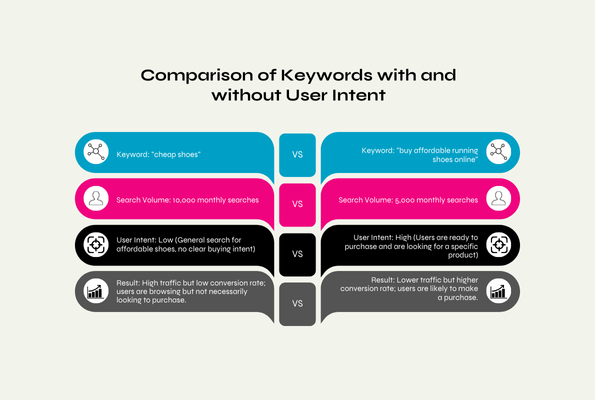
Even though the keyword “cheap shoes” has a higher search volume, it doesn’t target users ready to buy. On the other hand, “buy affordable running shoes online” attracts fewer users, but they have a higher likelihood of converting into customers because their intent is to purchase.
How to Analyze a Keyword
You’ve found some keywords, but now it’s time to dig deeper and figure out if they’re really worth your effort. Consider these factors:
Competition: Check out the competition for each keyword. Are there already a ton of well-established websites ranking for it? If so, you might want to focus on less competitive terms to increase your chances.
SERP Features: Some keywords trigger rich results like snippets or knowledge panels. If you can rank for one of these, it can significantly increase your visibility.
Trend Data: Is the keyword rising or falling in popularity? A keyword that’s losing steam won’t bring you much long-term value, while a trending keyword might be worth focusing on.
Cost Per Click (CPC): For paid campaigns, understanding a keyword’s CPC helps you gauge its commercial value. High CPC keywords often indicate that they convert well for advertisers. Even for organic search, knowing the CPC can give you insights into the commercial potential of the keyword.
Keyword Intent Classification: Analyzing whether the keyword is navigational (users want to find a specific website), informational (they need answers), or transactional (they’re ready to make a purchase) is crucial. Keywords with strong commercial intent should be prioritized for conversion-focused content.
SERP Volatility: How stable is the keyword in the search results? Some keywords experience frequent fluctuations in ranking, while others are more consistent. A volatile keyword might be more competitive, requiring constant monitoring and optimization efforts.
Click-Through Rate (CTR): Analyze the CTR potential of a keyword. If rich features like knowledge panels or snippets dominate the SERP, it can affect how many people actually click through to your website. Keywords with a higher organic CTR will drive more traffic to your pages.
Page Authority and Domain Authority: Check the authority of the top-ranking pages for your chosen keyword. If those pages have significantly higher domain or page authority than yours, it might be difficult to compete. Prioritize keywords where you have a chance to outrank others based on the authority of your site.
Search Intent Match: Analyzing keywords involves more than just volume and difficulty. Look at whether the content ranking for that keyword matches the search intent. For instance, if you’re targeting “best smartphones,” but all the top results are product review sites, you’ll need to create similar content to compete.
Keyword Trends Over Time: Some keywords may show seasonal or cyclical patterns. Analyzing the trend data for your target keyword helps you determine whether it’s a steady performer or a term that only spikes at certain times of the year (e.g., “Christmas gift ideas”).
Backlink Analysis: See how many backlinks the top-ranking pages for your keyword have. If they have a significant number of high-quality backlinks, it may be harder to outrank them unless you also have strong off-page SEO strategies.
Traffic Potential: Just because a keyword has high search volume doesn’t mean it’ll drive significant traffic to your site. Look at the overall traffic potential of ranking for a keyword, especially in combination with related terms or long-tail variations.
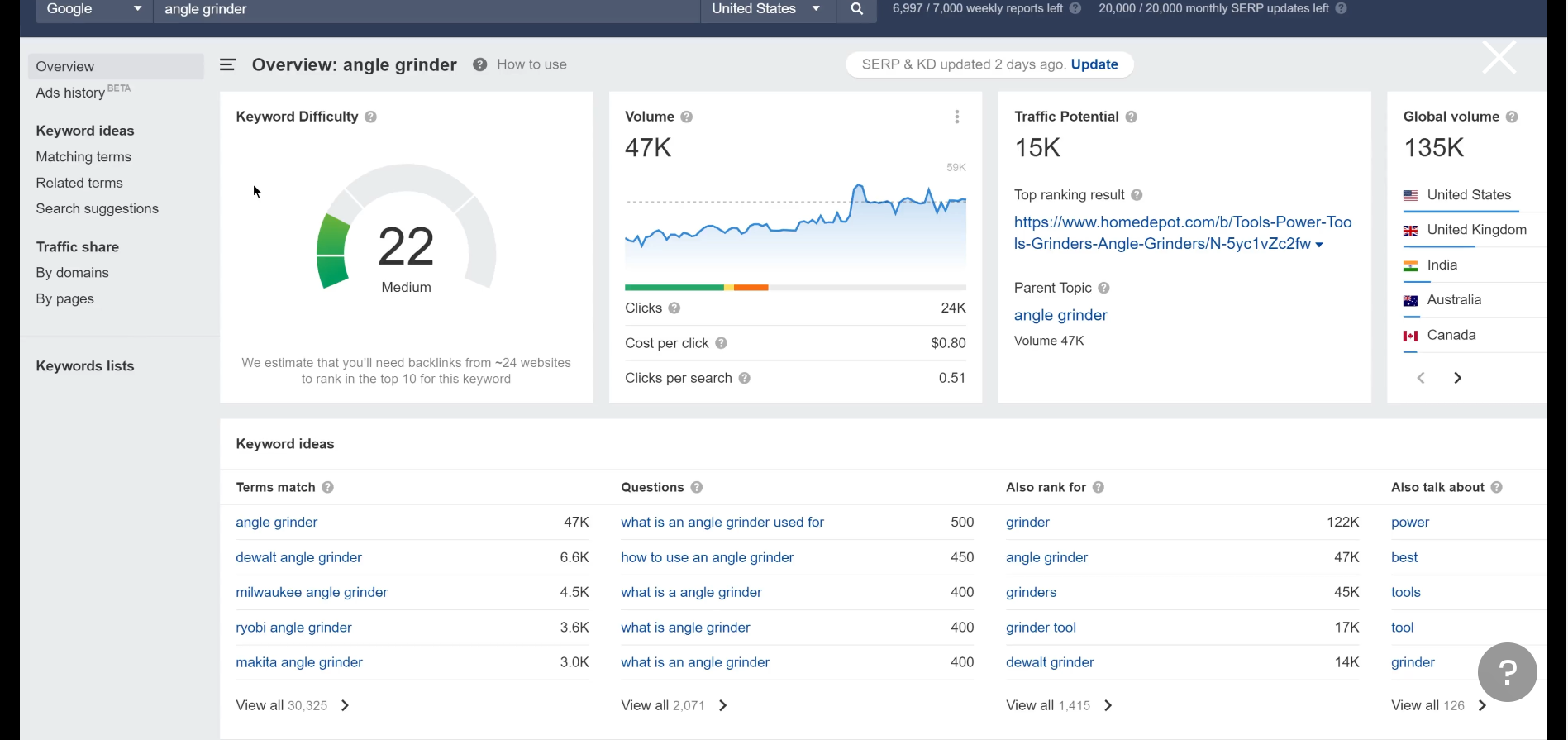
Keyword Research FAQs
- What is the simplest way to do keyword research?
- Start with Google’s search suggestions and use free tools like Ubersuggest.
- What is the easiest way to find keywords?
- Think about your audience’s needs and use tools to expand your ideas.
- Can I do keyword research for free?
- Absolutely! Tools like Google Keyword Planner and Ubersuggest offer free features.
Conclusion
Keyword research doesn’t have to be complicated. By following these easy steps and using the right tools, you can find the best keywords to boost your SEO and attract the right audience. Remember, the key is to keep your content relevant and aligned with what your audience is searching for. Start your keyword research journey today and watch your website climb the ranks!



